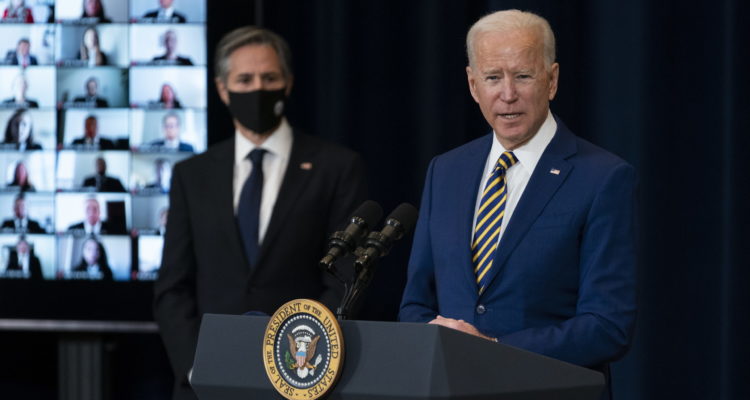“The expansion of settlements undermines the geographic viability of a two-state solution, exacerbates tensions, and further harms trust between the parties.”
By World Israel News Staff
The U.S. State Department has lashed out at Israel over its move to rebuild the Homesh yeshiva in a new, “permanent” site as part of the government’s efforts to legalize settlements in Judea and Samaria that were evacuated during the 2005 Disengagement.
“We are deeply troubled by the Israeli government’s recent order that allows its citizens to establish a permanent presence in the Homesh outpost in the northern West Bank,” the State Department said in a statement. “It is inconsistent with both former prime minister [Ariel] Sharon’s written commitment to the Bush administration in 2004 and the current Israeli government’s commitments to the Biden administration.”
However, the statement failed to mention that the Obama administration, in which President Joe Biden served as vice president, rejected the validity of the agreements between Sharon and Bush in 2011.
“The expansion of settlements undermines the geographic viability of a two-state solution, exacerbates tensions, and further harms trust between the parties,” the statement went on. “This is consistent with the views of previous administrations, both Democratic and Republican. We regularly engage with Israeli officials on this issue and will continue to do so.”
On May 20, the head of the IDF’s Central Command signed off on permission for Jews to enter Homesh and annex it to the Samaria regional council. This followed the Knesset’s repeal two months ago of the Disengagement Law as it pertained to the four villages that were forcibly evacuated in 2005 in northern Samaria.
While Sa-Nur, Ganim and Kadim have always remained empty, there was already a yeshiva in Homesh before the Disengagement, and its students soon came back to study there in temporary accommodations that were periodically destroyed by the army over the ensuing years.
Israel’s High Court of Justice had ruled that the yeshiva was illegal, as it allegedly stood on private Palestinian property.
The only permission granted towards the actual reconstruction of the yeshiva was to plan new buildings there, on paper. The Biden administration strongly objected to the rebuilding of the settlement itself, and Prime Minister Benjamin Netanyahu assured Washington that this would not happen.
Before dawn Monday, students and volunteers set up the study hall in new mobile homes several hundred meters from its original location on land legally designated for construction, in full approval from Defense Minister Yoav Gallant.





